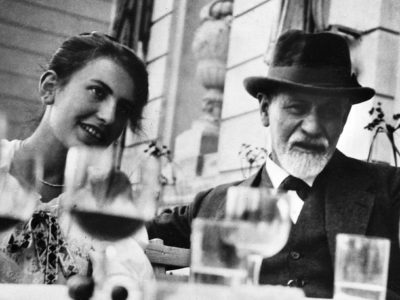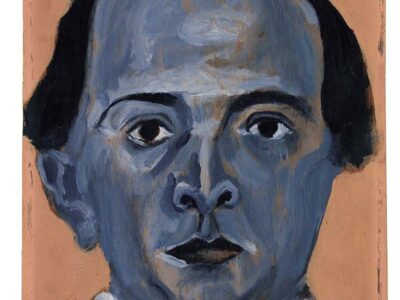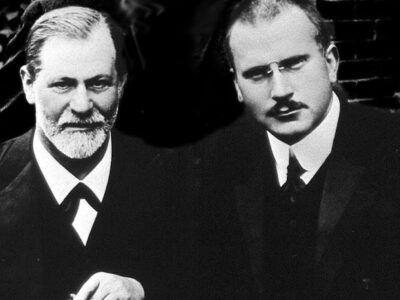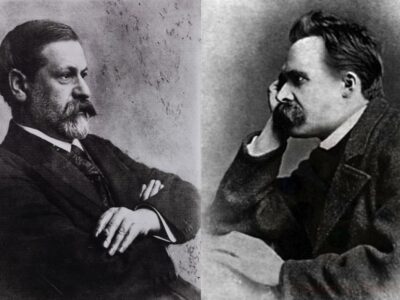
- This event has passed.
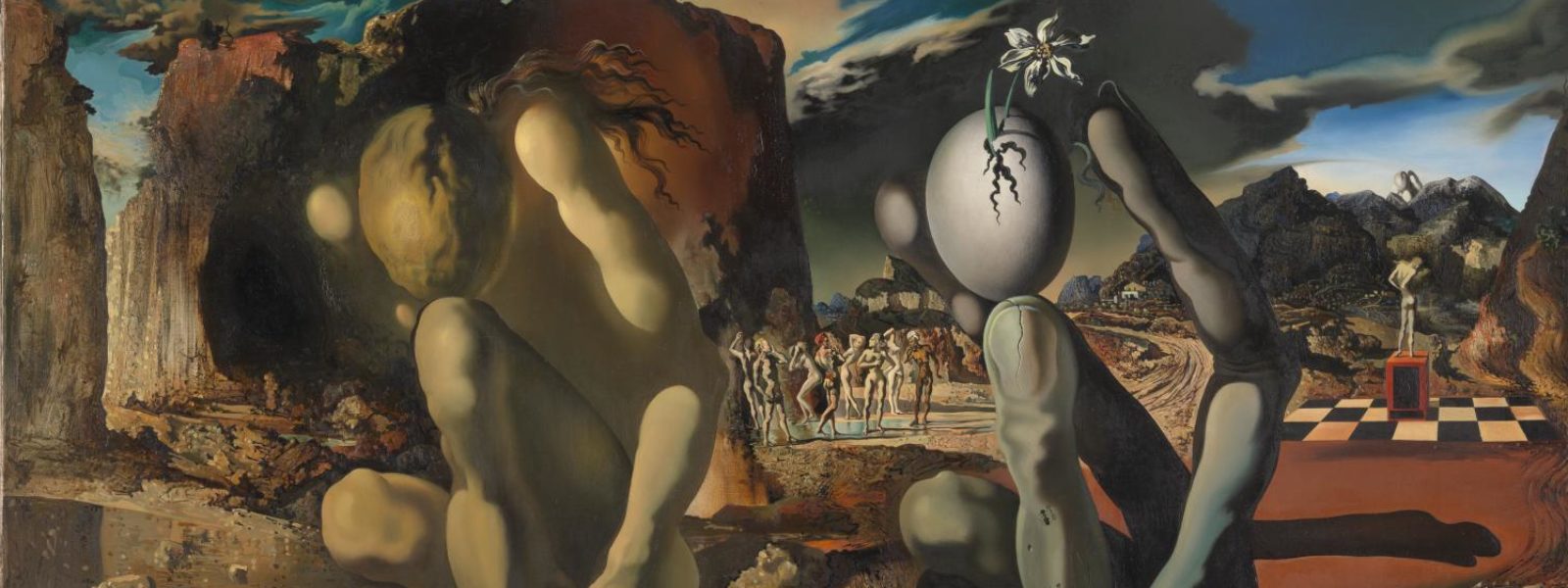
Conference Programme PDF
Abstracts and Biographies PDF
Restaurant List
“It would be very interesting to investigate analytically how a picture like this came to be painted.” (Freud)
In 1938 Salvador Dalí met Freud in London, bringing with him his painting Metamorphosis of Narcissus and a new article about his ‘paranoiac-critical’ method, first described in his book Conquest of the Irrational.
Freud was an inspiration for the Surrealists and they were well-versed in his ideas, particularly his work on dream theory, free association, and investigations into the workings of the unconscious. In the 1924 Surrealist Manifesto, André Breton defined Surrealism as “pure psychic automatism”, in other words, the uncensored workings of the unconscious. In later years Jacques Lacan’s close relationship with the Surrealists led to a lasting bond that continued to link psychoanalysis and surrealism until the present day. Can the paranoiac-critical method be a valid means of understanding psychosis?
This conference will address psychoanalysis and its impact on Surrealism and the impact of Surrealism on psychoanalysis, bringing together art historians, psychoanalysts, authors and artists to reflect on the many facets of this relationship.
ABSTRACTS
Dawn Ades
Introduction
Martin Bladh
The Rorschach Text (reading)
Krzysztof Fijalkowski
The Question of Play Analysis: Surrealism, Psychoanalysis and the Game of Symbolically Functioning Objects
Salvador Dalí’s proposition for Symbolically Functioning Objects (1931) made an important contribution to the establishment of objects as a major priority for surrealism. In line with the surrealist group’s research strategies, this novel category of objects is presented in the framework of a game, one in which the construction of assemblages by participants is answered by a second phase of interpretation in terms of unconscious motivations. The challenges of such interpretation, however, were by no means unfamiliar to surrealists. Just a few years earlier, issue 9-10 of the group’s journal La Révolution surréaliste (1927) had published an exclusive extract of Freud’s The Question of Lay Analysis, while at least one psychoanalyst – Jean Frois-Wittmann – was close to the group at the turn of the decade, supporting the sense that Dalí’s appropriation of psychoanalytic method is carried out in a highly informed context, even if to very different ends: symbolism, eroticism, mobility are all harnessed in such a way as to reveal an extravagant complicity between subjects, objects and the motivations crossing between them. A conversation between analysis, play and the object is at stake here, one in which none of these parameters emerge unchanged.
Anouchka Grose
Narcissism, Censorship and the Unconscious
This paper will explore Freud and Dali’s rather different ideas about censorship. Starting with their comically perplexing meeting, it will also look at the myth of the ‘crazy artist’ in the context of Freud’s ideas about the unconscious and narcissism.
Sharon Kivland
The Missed Encounter (Reading)
…a disappointment, an ear, and a snail.
Darian Leader
Art, Dreams and Psychoanalysis
Surrealism is often seen as an illustration of the dreaming process, with Dali in particular as the ‘Industrial Light and Magic’ of psychoanalysis. But beyond shallow comparisons of surface imagery, what do the two have in common? What problems might art and dreams share, and how can they illuminate the psychoanalytic process itself?
David Lomas
A Language of Flowers: Surrealism, Psychoanalysis, and the Botanical Imaginary
Freud’s dream of a botanical monograph contains a reproach directed against him for having neglected the science of botany. In botany post-Linneaus, a vision of plant sexuality emerges that resembles in its freedom from constraints Freud’s account of the polymorphously perverse character of human sexuality before it comes under control of the Oedipus complex. My paper will argue that for modern artists working in a surrealist idiom, many of them women, botany – acting in concert with psychoanalysis – offers the means to defy restrictive norms governing gender and sexual relations. I will survey various artists where I believe this to be the case, examining in depth Helen Chadwick’s “Piss Flowers” (1991-2), cast from cavities produced by peeing into snow. When inverted, these casts present a surprising analogy to the pistils and stamens of a typical, bisexual flower. Drawing subversively upon Freud’s urethral eroticism, combined with her knowledge of Linnaeus, the “Piss Flowers” (created at a moment when Chadwick was collaborating with AIDS charities) propose a queer alternative to human sexual dimorphism.
SPEAKERS’ BIOGRAPHIES
Dawn Ades is Professor Emerita of the History and Theory of Art at the University of Essex, Professor of the History of Art at the Royal Academy, a former trustee of Tate (1995-2005) and of the National Gallery (2000-2005) and a Fellow of the British Academy. In 2013 she was appointed CBE for services to higher education.
The many exhibitions she has organized or co-curated, in the UK and abroad, include the current ‘Freud, Dali and the Metamorphosis of Narcissus’ on display at The Freud Museum until 24 February 2019, Dada and Surrealism Reviewed (1978); Art in Latin America: the Modern Era 1820-1980 (1989); Dalí’s Optical Illusions (2000); Salvador Dalí: the Centenary Exhibition (2004); Undercover Surrealism: Georges Bataille and Documents (2006); Close-Up: Proximity and Defamiliarisation in Art, Photography and Film (2008); and Dalí/Duchamp, (Royal Academy and the Dalí Museum 2017-18).
Martin Bladh is a Swedish-born artist of multiple mediums. His work lays bare themes of violence, obsession, fantasy, domination, submission and narcissism. Bladh is a founding member of the post-industrial band IRM, the musical avant-garde unit Skin Area and co-founder of the publishing company Infinity Land Press. His published work includes To Putrefaction, Qualis Artifex Pereo, DES, The Hurtin’ Club, Darkleaks – The Ripper Genome and Marty Page. He lives and works in London.
Antal Bókay, professor of modern literature and literary theory, and co-founder, lecturer of the Psychoanalysis PhD Program at the University of Pécs, Hungary. Founding Member of the Hungarian Ferenczi Association and the Imago Society Budapest and President of Psyart Foundation (USA). Interests and publications in theory and history of psychoanalysis, psychoanalysis and literature and poetics of modern poetry.
Krzysztof Fijalkowski is Professor of Visual Culture at Norwich University of the Arts. He has written extensively on aspects of surrealist art, literature and philosophy, and is a contributing editor of the forthcoming International Encyclopaedia of Surrealism (Bloomsbury, 2019).
Anouchka Grose is a psychoanalyst and writer practising in London. She is a member of The Centre for Freudian Research, where she regularly lectures. She has written non-fiction: No More Silly Love Songs: a realist’s guide to romance (Portobello, 2010), Are you Considering Therapy (Karnac, 2011), and From Anxiety to Zoolander: notes on psychoanalysis (Karnac, 2018) as well as writing fiction: Ringing for You (Harper Collins, 1999) and Darling Daisy (Harper Collins, 2000). She also writes about art and contributes to The Guardian, Radio 4, and Resonance FM.
Sharon Kivland is an artist and writer, and editor and publisher (her press: MA BIBLIOTHÈQUE), and occasionally a curator and translator if pressed, who lives and works in France and the UK. Her work considers what is put at stake by art, politics, and psychoanalysis. Recent projects have followed revolutionary movements in France, taking up fashion and fashioning (the shaping of bodies) and education, and include rewritings of Marx’ s footnotes to Capital and Emile Zola’s novel Nana. Reading and politics are evoked and feminised, in a manner that is both elegant and belligerent. She is the author of a number of books in a series somewhat frivolously entitled Freud on Holiday, including appendices and related works.
Darian Leader is a psychoanalyst working in London and a member of the Centre for Freudian Analysis and Research and of The College of Psychoanalysts-UK. He is the author of several books including: Why do women write more letters than they post?; Freud’s Footnotes; Stealing the Mona Lisa: What Art Stops Us From Seeing; Why do people get ill? (with David Corfield) , The New Black: Mourning, Melancholia and Depression, What is Madness? , Strictly Bipolar and Hands, and frequently about contemporary art.
David Lomas is Emeritus Professor of Art History at the University of Manchester. His publications on surrealism include Haunted Self: Surrealism, Psychoanalysis, Subjectivity. He curated the exhibition Narcissus Reflected at the Fruitmarket Gallery, Edinburgh. He is also an artist.
Bursaries
A limited number of bursary places are available for those under financial hardship.
Bursary places are charged at £25.
Priority will be given to UK unemployed and PIP/ESA claimants.
